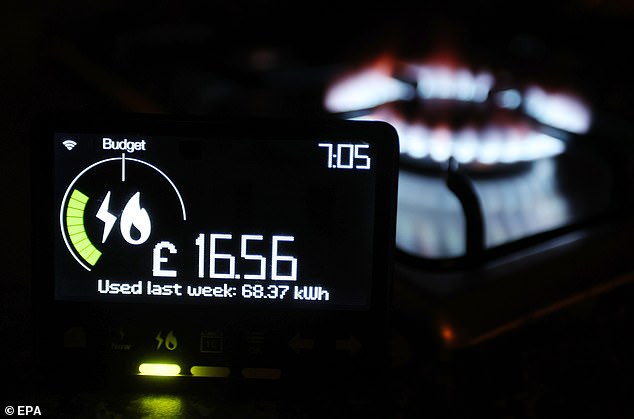Full disclaimer: I still haven’t buckled under the pressure from my energy supplier to have a smart meter fitted, nor am I likely to, despite constant hounding through phone calls and text messages.
There are a few reasons, the main one being: I don’t believe it’ll benefit us as a household. We’re already thrifty on energy use, as indicated by our annual statement which always puts us under the amount used versus those in similar-sized properties.
I’d much rather stick on an extra jumper and keep the thermostat at 19 degrees in the evening, than whack it up any higher than necessary and keep a beady eye on the smart meter. I already have enough technology on my life.
I know they are the very epitome of Marmite devices and if you are someone who has a smart meter and it works for you, that’s great.

Marmite: Smart meters are one of the most divisive areas of modern life
But I believe the technology isn’t completely foolproof – and it appears it can be a pain to put right.
In recent weeks, we’ve had dozens of readers contact us to say their smart meter isn’t working properly – and it involves a Kafkaesque nightmare with some energy suppliers to attempt fix the problems.
Indeed, last week Octopus Energy boss Greg Jackson criticised in-home displays for smart meters on social media website X.
He said: ‘We’ve had a million such sessions looking at those darned things. They’re so bad.’ And hats off to him for being honest.
Since then, we’ve had Octopus (and other energy supplier) customers write in over problems. One, who we wrote about earlier in the week, believes hers is faulty and the bill is far too high.
It is worth pointing out here this isn’t totally the fault of Octopus – and I believe its response to our questions was the perfect way to handle such a query, with our reader receiving a complementary electric blanket from them as it investigates.
Energy suppliers are under pressure to hit smart meter installation targets. But they don’t appear to be under as much pressure to check out and fix faulty meters and tech.
And that tech, especially for the early adopters, is starting to feel dated. When will the gadgets start to need replacing? Will we see even higher standing charges – the ever-increasing costs that are soaked into our bills to fund smart meters.
I think we already know and have seen the answer to that.
Our household standing charges are up nearly 200 per cent in eight years. I’d wager that it’s likely yours has gone up by a similar amount.
And as the Post Office/Fujitsu scandal shows, if you do believe a piece of technology is not accurate, it can be an extremely hard process to put right.
I try to keep personal data handed to any firm to a minimum. Sending out half-hour readings from a smart meter seems overly excessive to me, and I’m not all that interested in taking part in the Demand Flexibility Service.
In summary, I just can’t see any reason to have a smart meter installed.
I am currently toying with having solar panels fitted to the roof. We have a south facing garden with plenty of sunshine, and as such, they wouldn’t ruin the kerb appeal from the front.
I’m in full investigative mode to decide whether they are worth having. Indeed, installations in 2023 hit a seven-year high.
That might be the only way to tempt me into having a smart meter, to see how much power is being generated by the solar panels – and keep my fingers crossed it is accurate.
In the meantime, it appears the energy price cap will fall in April and again in July. I wrote in September that I had chosen a fixed tariff, and that runs out in November 2024.
With a higher January cap, and more usage at this time of year, I still believe it was the correct move. But, with 35 fixed-rate tariffs currently on offer, it looks wise NOT to fix now.
The price cap for typical use is currently set at £1,928 by Ofgem. Experts at Cornwall Insight believe this could drop below £1,500 by the summer.
If the time does come that better fixes arrive, remember to check the small print… some require a smart meter in order to take advantage.




